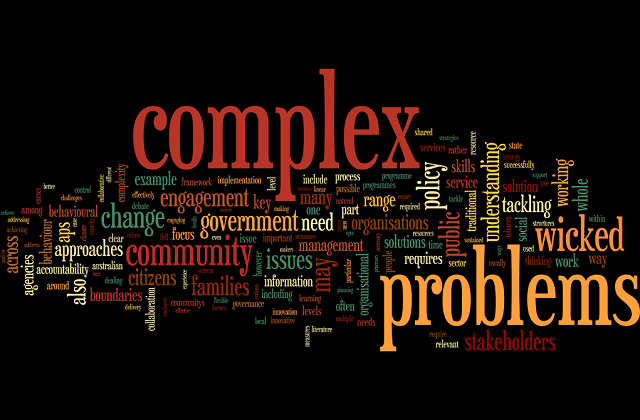by Dr. Sadia M Husain
The Plight of Pakistan
Since its inception, Pakistan has been at crossroads between internal and external labyrinths of power corridors. Pakistan has not only endured but also inherited the progeny of colonialism in almost all walks of life. Critically, once a British Colony emerged as an American-obsessed state when it joined American Block in 1948 instead of keeping the posture of neutrality. Where it enjoyed the perks of affiliating with America, it bore the brunt and wrath of the regional giants. Since then, the USA has been trying to keep South Asia and South East Asia in its shadow through Pakistan. More often, critical analysts of Pakistan’s foreign policy ascribe it to a relationship between a master and a servant. The proxy War in Pakistan through arch-rival India and the cold War due to ineffective containment plans of America against its competitors in Asia has dragged the region into a battlefield in one way or another, as many allude to it, at the cost of Pakistan.
Foreign and local policies have constructed a biased and polar society without national identity and independent status as a primary nation-state among the nations. Poor economy, dilapidated infrastructure, political turmoil, ineffective judicial system, powerful Establishment, and the indentured War on terror have become a burden on Pakistan despite being a nuclear power, as those are fewer in the world.
The state of Pakistan has suffered internally and externally. The powerful elite not only plundered its resources and the immense potential of its youth but also failed to represent the land with variegated aptitudes and underlying strengths in front of the global arena. The unscrupulous politicians’ irrational policies, abortive laws, pawn institutions, and unproductive & impractical future endeavors pushed the country into a state of Kakistocracy in which incompetence and ineligibility remained the key features. Failure in institution-making was the fundamental failure of Pakistan in the early part of independence. The Fall of Dhaka in 1971 shored up the incompetence of the political giants and that of the Deep State, being harnessed by the invincible Establishment instead of the political fraternity. The state cannot be blamed for its misfortunes but for the individuals who live and rule the country with impunity.
Despite religious, ethnic, and linguistic contradictions, and what’s not bartered against the dignity of Pakistan and its people, it has managed to survive and protect its inhabitants all along the slippery path. The people were deliberately deprived of the basic amenities, i.e., food, shred, and shelter, lest the awareness makes them rebellious towards the oppressors. The political chaos in Pakistan has been spread over seven decades with embedded martial laws, surrogated governance, and conspiracy-laden theories. Consequently, the democracy could not sustain itself in Pakistan, unlike it strengthened its foundation in the rival land, India, despite the distribution and availability of the same resources, culture, and standard patterns. The corrupt and power seekers remained occupants of the land, depleting its exchequer to the current state of economic, social, and political collapse. The Kakistocracy is found protecting the evil and manipulative kleptocrats, carrying spurious intentions of greed and power play. The recent Regime Change through Cipher Conspiracy and bringing corrupt politicians to power paints the perfect caricature of a surrogated republic, not the Islamic Republic of Pakistan.
There is always symbolism. The international political leaders could not restrict themselves from throwing tantrums against Pakistan. Recently, USA president Joe Biden questioned the safety of Pakistan’s nuclear assets and blamed Pakistan for “may be one of the most dangerous nations in the world. Nevertheless, the State Department of the USA tried to wash off the blame by terming it a personal statement given by the former. Likewise, Russian Senator Igor Morozov, a member of the Russian Federation Council’s defense committee, blamed Pakistan for sharing nuclear weapons technology with the Ukrainian delegation for the development of their “Dirty bomb,” which would be used by Kyiv against Russia during the ongoing Ukrainian War. Pakistan has refuted all such allegations and sought an explanation for the leaders’ irresponsible statements and allegations against it. Contemplation is the need of the hour to determine the factors for our failed foreign policies as well as the role of leaders in reciprocating such attitudes towards Pakistan. The foreign policy of a country is directly dependent upon the national power of the country.
Political instability and mismanagement breed political instability, economic recession, judicial incompetence, and social chaos. However, the current chaotic currents might streamline Pakistan’s broken cords of progress and development because people have enough of all. Therefore, it demands each individual of the land to play a constructive role in establishing a state of people, for the people, and by the people with the ultimate power and guidance from the Almighty. Pakistan requires democracy and public rule. Hence, Robust psychological, social, institutional, and political reforms may be revamped and introduced for a healthy and sound society to compete in the age of technology. Definitive roles and responsibilities with adequate intrinsic accountability mechanisms may be rewritten to lead the comity of nations if desired. A conscious and sound government is the foundation of a strong and developed Pakistan in the process of becoming one.
Last but not least, Pakistan is facing a capacity crisis. Mismanagement is eroding all social and administrative operations. Pakistan needs reforms and restructuring. The concept of devolution and specialization must be translated into legislation and administration. Legislature, Executive, and Judiciary need specialization and accountability. The role of the Establishment should only remain to their official business. We must build our political and administrative institutions to develop slowly but surely. The plight of Pakistan requires serious overhauling and reformation. For how long will we continue to be embarrassed internally and externally?
The writer is an Eye Specialist and Co-Editor of Republic Policy

















































